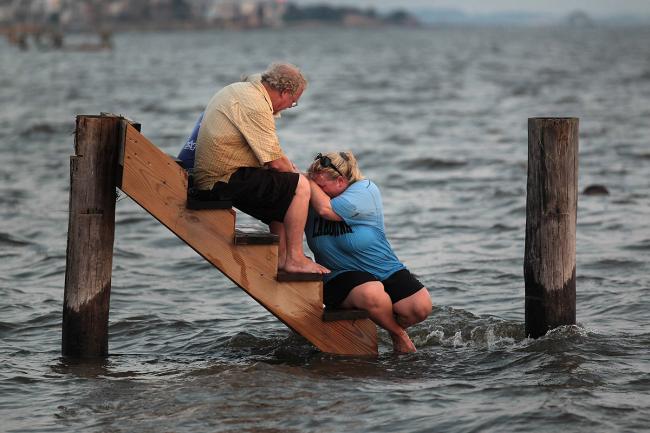After Hurricane Irene last weekend, my parents in New York had no electricity for days, and had to:
- purchase a generator (which wouldn't be necessary if they had solar electricity and hot water - they'd be sitting much prettier right now)
- purchase ice bags a couple of times per day to keep their extra fridge and freezer cool and prevent spoilage
- pay to have several fallen trees removed from their property. One fell on the roof above where they were sleeping, but thankfully caused little damage
- have a leaky roof fixed.
Indeed, a new study from the University of Sydney's Brain and Mind Institute finds that extreme weather, on the increase due to humanity's unsustainable emissions of heat-trapping carbon pollution, "threatens mental health."
Here are a couple of choice quotes from the researchers:
"Recent experience shows extreme weather events also pose a serious risk to public health, including mental health and wellbeing, with serious flow-on consequences for the economy and wider society."
"The emerging burden of climate-related impacts on community morale and mental health - bereavement, depression, post-event stress disorders, and the tragedy of self-harm - is large."
In the case of Irene, which has left millions without power, just think how much happier folks with solar roofs are right now, compared to their neighbors who remain entirely dependent on America's aging electricity grid.
Why not include a big Solar America push in the upcoming jobs plan that President Obama plans to announce this week? As I like to say, empty roofs = wasted space. Perhaps start with schools, but also include low-cost financing programs for homeowners who are tired of the increasing unreliability of the grid and are ready to move their home's energy source into the 21st century.
The result will be to create untold thousands of jobs and make a lot of people happier.
Why not include a big Solar America push in the upcoming jobs plan that President Obama plans to announce this week? As I like to say, empty roofs = wasted space. Perhaps start with schools, but also include low-cost financing programs for homeowners who are tired of the increasing unreliability of the grid and are ready to move their home's energy source into the 21st century.
The result will be to create untold thousands of jobs and make a lot of people happier.

No comments:
Post a Comment